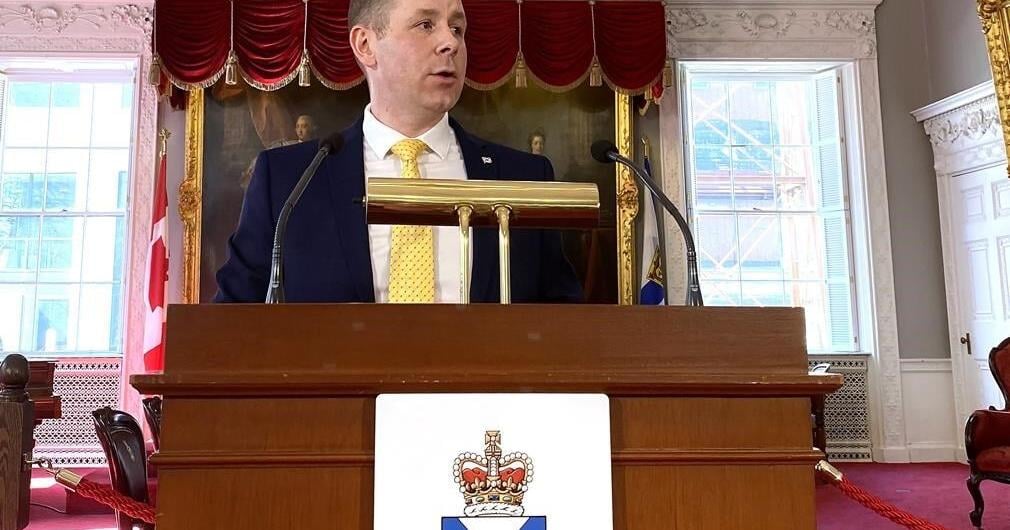HALIFAX – A loophole in Nova Scotia‘s rental housing rules is making the provincial government’s proposed rent cap extension essentially useless, housing advocates and opposition parties say.
Last week, Service Nova Scotia Minister Colton LeBlanc tabled legislation that would extend the existing five per cent cap on rent increases for another two years to the end of 2027. But the province’s efforts won’t help renters so long as fixed-term leases are allowed, Tim Allenby, co-chair of the Dartmouth chapter of housing advocacy group ACORN, said Monday.
“The rent cap is already not ideal, given that five per cent is above inflation, so that’s not going to help the affordability problem. But then you throw on top of that this gaping canyon of a loophole,” he said about fixed-term leases.
A fixed-term lease, unlike a periodic lease, does not automatically renew beyond its set end date. The provincial rent cap covers periodic leases and situations in which a landlord signs a new fixed-term lease with the same tenant. But there is no rule preventing a landlord from raising the rent as much as they want after the term of a fixed lease expires — as long as they lease to someone new.
These rules discourage landlords from re-signing fixed-term leases, and instead incentivizes them to rent to someone new so they can raise the rent beyond the five per cent cap, Allenby said. The government’s regulation, meant to protect tenants, actually pushes more people toward homelessness as some renters are forced back into the tight housing market, he added.
“The Nova Scotia government could do something about this, and instead has chosen to do what is just a gesture, basically,” Allenby said.
Sydnee Blum, a community legal worker with Dalhousie Legal Aid, said it’s impossible to know exactly how many fixed-term leases are signed each year — such residential tenancy data is not tracked. But she said she has reason to believe the majority of renters who have signed new leases in the last several years are on fixed terms.
“We very rarely hear from tenants on periodic leases anymore,” Blum said in an interview Monday, adding that the use of fixed-term leases has “certainly exploded since the start of COVID.”
Allenby agrees, saying they seem to be the default lease type among people who share their experiences with ACORN.
In an emailed statement Monday, a Service Nova Scotia spokesperson said, “we understand the housing crisis is creating stress and worry for many Nova Scotians, including those on fixed-term leases.”
“The province will continue to monitor the rental environment in today’s tight market while we work to increase the housing supply,” Geoff Tobin said.
The statement said that while government doesn’t like to hear of cases where fixed-term leases are “being abused,” there are legitimate uses for them.
Braedon Clark, the Nova Scotia Liberal’s housing critic, said in an interview Monday, “the fundamental problem is you can’t have a rent cap system and fixed-term leases as they exist” because they will continue to be “used as a tool to circumvent the rent cap.”
“This is a huge problem with the system that government has done nothing about,” he said, adding that about a year ago he put forward legislation based on a model used in British Columbia that converts fixed-term leases to periodic leases at the end of their term, so long as both parties agree.
Nova Scotia NDP Leader Claudia Chender called the existing rent cap “fundamentally useless,” saying it does not help Nova Scotians struggling with the high cost of living. She said in order to prevent more people being pushed into homelessness, action must be taken to close the “fixed-term lease loophole.”
Chender said that because of fixed-term leases, “people are in the situation where they have to move every year, and they’re being priced out,” which is especially hurting young renters, seniors, and anyone on a fixed-income.
A solution, Chender said, is for the government to tie its rent cap rules to the housing unit rather than to the individual renter.
This report by The Canadian Press was first published Sept. 9, 2024.

























